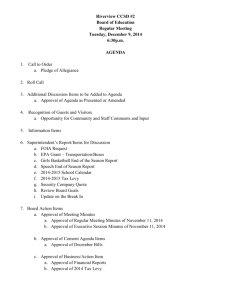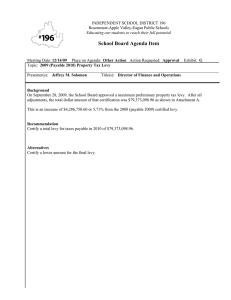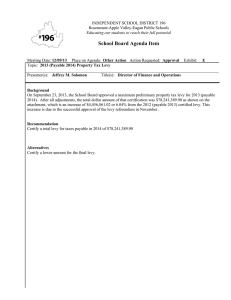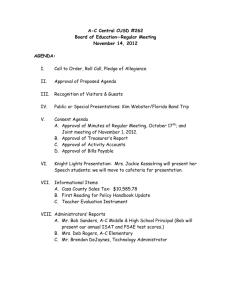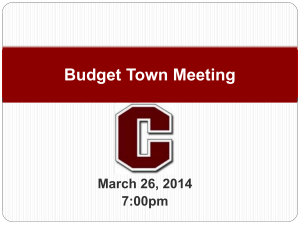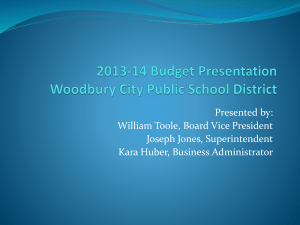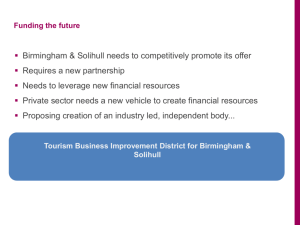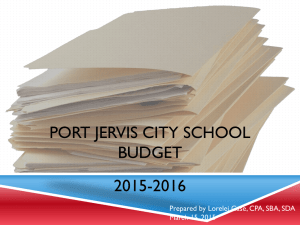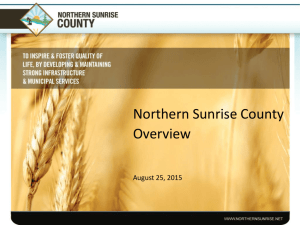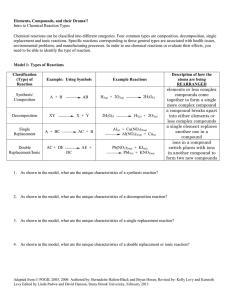Principles of the new funding model
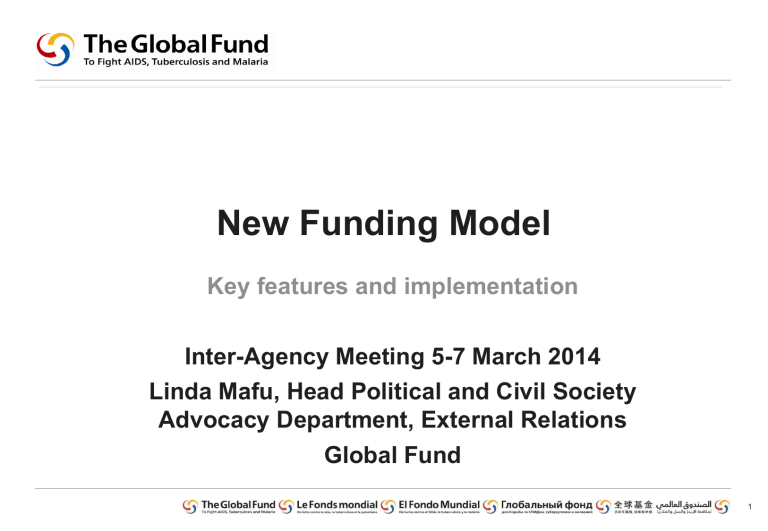
New Funding Model
Key features and implementation
Inter-Agency Meeting 5-7 March 2014
Linda Mafu, Head Political and Civil Society
Advocacy Department, External Relations
Global Fund
1
Principles of the new funding model
Principles of the new funding model
• Bigger impact: focus on countries with the highest disease burden and lowest ability to pay, while keeping the portfolio global
• Predictable funding: process and financing levels become more predictable, with higher success rate of applications
•
Ambitious vision : ability to elicit full expressions of demand and reward ambition
• Flexible timing: in line with country schedules, context, and priorities
• More streamlined: for both implementers and the Global Fund
2
How does the new model differ from the previous model?
From previous model
• Passive role by the Secretariat in influencing investments
• Timelines largely defined by the Global
Fund
•
Hands-off Secretariat role prior to Board approval
•
Low predictability: timing of Rounds, success rates and available funds
• Cumbersome undifferentiated process to grant signing with different delays
To new funding model
• More active portfolio management to optimize impact
• Timelines largely defined by each country
•
Engagemen t by Global Fund Country
Teams in country dialogue and concept note development
•
High predictability: timing, success rates, indicative funding range
• Disbursement-ready grants with differentiated approach
3
New funding model cycle and timing
National
Strategic Plan/
Investment Case
Concept Note
2-3 months
Ongoing Country Dialogue
TRP
Grant Making
1.5-3 months
GAC
2 nd
GAC
Board
Grant
Implementation
3 years
Countries can apply anytime in 2014-2016 – identify now when funds are needed for each disease
Grant funds can be for 3 years beyond grant signature in 2017 & beyond
4
1
How long will it take to access funds?
The average timing will be around 10 months from country dialogue to grant dispersements.
Depending on how prepared a country is, it could take as little as 6 months or as long as 16 months to access funds.
Working ahead on a strong National Strategic Plan or investment case is the best way to speed up the process.
5
Program Split
Approach to be used:
Information given to country will include:
• How total funding envelope calculated (including amount per component) and amount to be accessed
• Guidance on HSS investment ;
6 6
What is the Global Fund’s contribution to
FOR ATM -2014-2016
The Global Fund s contribution to meeting the global needs is $15 billion .
• Over $12 billion has been pledged in 2013 out of the $15 billion target.
We have a gap: of over $2 billion out of 15 billion is for 2014-
2016
We know that international priorities are changing . Health has a small cut .
7
Africa has made commitments
• Abuja Declaration on HIV/AIDS, Tuberculosis and Other Related
Infectious Diseases, 2001: Heads of State commit to spend at least 15
% of budgets on Health.
• Addis Ababa, African Union roadmap on shared responsibility and global solidarity for AIDS, TB and malaria response, 2012 Endorsed
Roadmap on Shared Responsibility and Global Solidarity for HIV, TB and Malaria, Pharmaceutical Manufacturing Plan
• Tunis Declaration on value for money, sustainability and accountability in the health sector, 2012 Enhance value for money, increase accountability improve sustainability of health resources
8
Domestic Investment 2011: % of total government expenditure
Rwanda
Malawi
Zambia
Togo
Tanzania
South Africa
Botswana
Nigeria
Kenya
23.7%
18.5%
16.0%
15.4%
11.1%
10.0%
8.7%
7.5%
5.9%
Source: UNAIDS, Oxford Policy Management, Et al.
9
To sustain an ATM and HSS Response
?
1. Increase domestic financing
• Public or government
• Private sector
• High Net Worth Individuals
2. We need to advocate for increased donor support
3. We need to involve new donors(emerging Market )
4.Decrease the cost of the current response by improving efficiencies in existing programs
10
Innovative ways of raising money
Source US $ billions
• 75% of an alcohol levy
• Contributions from high-revenue enterprises
3.9
2.4
• Airline levy by all African countries 1.7
• 2% of public sector budgets earmarked for AIDS 2.4
• Mobile phone levy
• 1% income tax levy earmarked for AIDS
• What else can we explore?
2.0
3.1
11
Plan for analyzing “Fiscal Space”
• Evaluating potential resources needed and resource availability, identifying future resource gaps and potential ways of eliminating such financial gaps.
• Assessing potential opportunities to make the 3 largest interventions efficient:
– ART
– PMTCT
– OVC
12
•
•
•
•
•
Areas where we are working on with countries and partners
The domestic and international funding-data needs to be improved and accessible .
Which organisation is funding what and where?
Political leadership is critical, and we have been working on developing advocacy messages to ensure that health continues to be a priority ,G8,G20,BRICS
Revisit the economic arguments for health, we need to get private sector to the table
Address rigid budgeting practices that are making it hard to reallocate revenues towards health
Empower Health officials to talk to finance and empower finance to understand health
13
•
•
•
Areas where we are working on with countries and partners
Recognize and improve the role of civil society
Address the core question: is it possible to define the “right” mix of domestic and international investment in countries and this will vary country by country.
Establish on a country by country basis an acceptable “benchmark” for countries to invest from their own resources.
14
Thank you.
15
